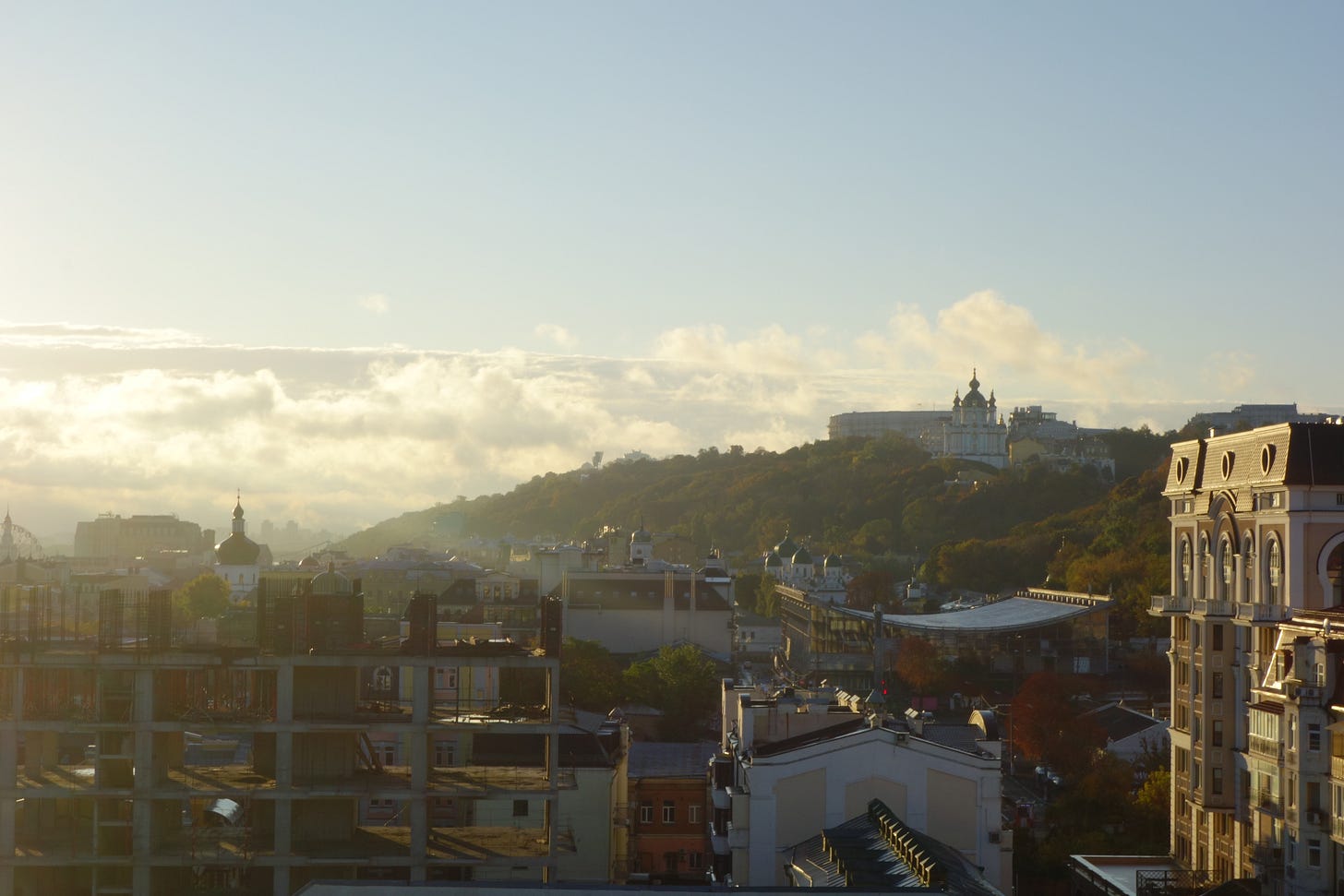The Long War #45
Maps in the war, preparing for elections when none are planned, 'grief police' & more
KYIV—Hi everyone, not much to say this week except to mention that I recently joined the Bear Market Brief podcast to discuss the current mood in Ukraine, a discussion you can listen to right here. Also, a quick reminder that you can support this newsletter with a paid subscription or simply by making a one-time donation over there. Thank you!
Something to read
Ukrainian Analytical Digest | The war of maps? Spatial (mis)représentations of the Russo-Ukrainian War in the digital context | September
Cartography is one of those niche topics I remain consistently fascinated by, making me particularly happy to see the Ukrainian Analytical Digest dedicate a full issue—six articles—to maps in the context of the war. I am honestly surprised this topic hasn't been explored more deeply until now: from showing territorial control to listing bomb shelters, from warning of missile attacks to highlighting Ukraine's precarious position next to its huge neighbor, maps have been everywhere in this war. One article looks in particular at how maps have become “increasingly present in the everyday life of Ukrainian citizens as an important element of the daily wartime routine”; Another focuses on the prevalence of cartographic imagery in war-related art; a third one looks more specifically at the cartographic ‘daily updates’ produced by organizations like the famous Institute for the Study of War.
Poltavshyna (in Ukrainian) | Possible local elections in 2025: administrative resources, candidate in power, online voting, angry and apathetic electorate | October 7
Bit of an obscure headline from Poltava-based outlet 'Poltavshyna', but the overall point is clear: in the Poltava region (and not only), local elites are gearing up for possible local elections next year. There isn't any official plans to hold any elections in 2025, but some politicians are nevertheless anticipating local elections, thinking that authorities may need elections to reassert their legitimacy, while presidential and parliamentary elections will remain impossible under martial law.
This article attempts to “carefully predict the challenges that candidates and voters would face”: the author argues that internally displaced Ukrainians (of which there are around 25,000 in Poltava) could be a new source of ‘administrative resources’—meaning they'll be pushed to vote for the incumbent in exchange for various benefits. Another issue, according to the author, is that “the majority of voters live in constant stress and read regular reports about corrupted officials, so they tend to be angry at authorities, both local and central”. At the same time, the author sees society as both “disorganized and apathetic”. It’s a bit confusing, which I think highlights the main question, one nobody really has an answer for: how will a society that has for three years been fully dedicated to the war effort handle any wartime elections?
Zakhidniy Kurye (in Ukrainian) | "Without mobilization, we will not be able to end this war" | October 8
Interesting interview of the deputy head of the Ivano-Frankivsk region's mobilization center. No actual figures but some valuable details, such as the statement that the number of men who did not update their military information (as required by the new law on mobilization) is “as large” as the number of men who did. Tensions between mobilization officers and the general population also remain high, according to Andriy Moroz: “in most cases, the handing out of mobilization notices is carried out by servicemen who took part in the hostilities and were injured [...] Despite this, they receive rejection, hostile attitudes and violence.”
Zhyttya (in Ukrainian) | 'You're already getting a manicure?' How the 'grief police' treats people who lost relatives during the war | October 14
Difficult testimonies of people who lost relatives in the war—an increasingly common experience—and faced incomprehension, scorn and even rejection. In some cases, this seems to stem from cultural expectations (the need to move on, “you're still young, you can get married again”) or from ritualistic expressions of patriotism that ring hollow in such a situation (such as the use of the popular phrase “heroes never die”). But it is also often caused by the huge gap in experience, something this testimony makes painfully clear: “I became upset when my friends started bragging to me about ‘holding the economic front’ while colleagues at work discussed how much they could pay to send their husbands abroad. They told me 'you're angry just because your husband was killed and you want everyone's husbands to be killed’”
ICYMI
The Washington Post / Why North Korea is sending soldiers to the Russian front lines
The New York Times / Political Infighting Hampers Ukraine’s Efforts to Avert Energy Crisis
The Washington Post / Meet Ukraine’s top fighting unit — at least that’s what its ad says
The Wall Street Journal / Ukraine Faces Bleak Winter as Russia Ramps Up Assaults, U.S. Support Trickles In




